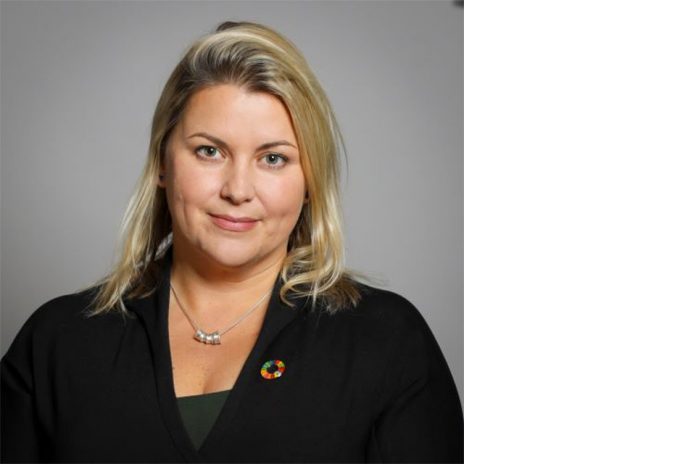I am pleased to join you all today on behalf of the UK Prime Minister, Boris Johnson. Global education is a top priority for the United Kingdom.
I’d like to thank my fellow co-hosts, Norway and Ghana, and of course, UNESCO for convening so many of us today.
In my remarks at the start of this extraordinary meeting on Tuesday I said that this is a crisis affecting every country. What has been clear in the discussions of the last two days is that there are particular challenges facing low-income countries and we need to come together to step up support.
As has been highlighted by many contributors to this meeting, even before COVID-19 struck, we were facing a learning crisis. Hard-won improvements in access to education were not matched by improved quality. World Bank and UNESCO data suggested that globally, over half – 53% – of children could not read and understand a simple story by the age of 10. In Low-Income Countries this figure was nearly nine in ten children.
Projections now suggest that the global rate may have increased to 63%, driven by massive disruption that has affected over a billion children since the pandemic began.
This is a tragedy for those children, but also for their communities and nations, as they risk missing out on the long-term health, economic, and social benefits that a quality education can secure.
To avert this tragedy, UNESCO has asked us to ‘reimagine and recommit’ to education.
‘Reimagining’ education requires taking tough decisions to prioritise what we know is effective. Next week I am looking forward to launching the Global Evidence Panel on Education with World Bank colleagues. The Panel reflects the growing global consensus on what is effective in getting children learning – even more important as the economic and health pressures of COVID-19 begin to bite.
For the UK, re-commitment starts with political leadership. All of us here today must work to elevate education as a core part of our COVID-19 responses. The UK believes that girls’ education should be central to this, and we will be standing up for the right of every girl to 12 years of quality education. Next year, this will be at the heart of our G7 Presidency, so the transformative power of girls’ education gets the political attention it deserves.
‘Re-Commitment’ also means proper resourcing. Throughout these first months of the pandemic, the UK has protected education support in our aid programmes. But more is needed. That is why next year, we will co-host the financing summit for the Global Partnership for Education with our good friends in the Government of Kenya. The Replenishment has a rolling financial target of $5 billion for the next five years. Yet even this won’t be enough on its own. We need innovative financial solutions to close the enormous financing gap, drawing in finance from additional sources, including the private sector.
The GEM2020 Declaration recognises the challenge we face. I very much welcome the focus on the most marginalised, including girls, and the call to action on finance. I look forward to seeing the proposals from UNESCO to strengthen the SDG4 Steering Committee, which must help make our collective efforts all the more effective.
We knew before COVID-19 hit that business as usual wouldn’t fix the learning crisis. It is now more important than ever that we raise our game, and come together in an effort to reduce the global learning gap. You can all count on the UK as a committed partner as we do so.







